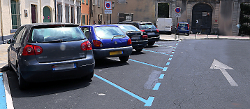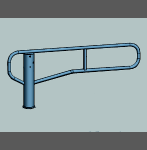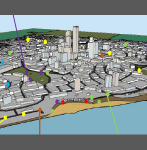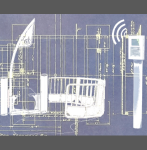In service of durable local policies

“Parking (…) on roadways has been developing in France since the 1970s,’ with the introduction of distinct zones, which correspond to varying rules and targets regarding vehicle rotation. Studies have shown that an unregulated parking space welcomes an average of one car per day, in comparison to a regulated and monitored parking space which welcomes an average of six cars per day.
Adopted in the context of the modernisation of territorial public action and confirmation of the metropolises (MAPTAM), the roadway parking reform will be implemented on the 1st of January 2018. It consists of a removal of parking penalties, as roadway parking is now dependant of the state management and no longer of the Mayor police. Consequently, communities will have full control over parking. They will have the ability to entrust the issuing of payment notices, and potentially control the whole supervision chain, as well as the management of their agents or of an enterprise via a public contract.”
(Parking and urban mobility, Letter from the FNMS n°5, October 2017)
Regulation and reinforcement of control towards encouraging drivers to be more spontaneously and regularly respectful
This change in behavior has been systematically observed in pioneering European states of this reform, such as Spain and the UK.
Cemavil is a public utility service aiming to accompany communities in the economical and ecological transition of territories, acting upon three major points:
Urban mobility
Revitalisation of town centers
Economical community constraints






